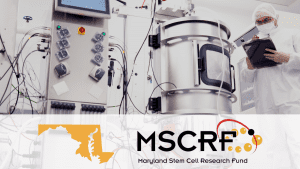
BioFactura Scores $33.5 Million Global Commercialization Deal for Stelara Biosimilar
The licensing deal paves the way for confirmatory Phase III studies that could lead to regulatory approval across the world.
By Alex Keown
August 2, 2023
| BioBuzz has been connecting the life science workforce since 2009. We’ve built an expansive community in the Mid-Atlantic with a national readership that spans from Massachusettes to Florida, and New York to California. For our next chapter, we’re building a proprietary talent logistics model to help employers source and hire life science talent. Learn more. |
With $33.5 million and up to a 43% share of profits from a global commercialization deal, BioFactura firmly planted its flag as a viable biosimilar developer.
Following positive results from a pivotal Phase I trial for its BFI-751, a biosimilar to Janssen’s Stelara (ustekinumab), Frederick, Maryland-based BioFactura inked the partnership with CuraTeQ Biologics Private Limited, a subsidiary of Aurobindo Pharma Limited that specializes in biosimilars. Janssen’s Stelara is used to treat people diagnosed with Crohn’s disease, ulcerative colitis, plaque psoriasis, and psoriatic arthritis. In 2022, Stelara generated approximately $10 billion in revenue. BioFactura’s StableFast platform allows the company to develop biosimilar drugs as close as you can analytically get to being an identical match to the branded product.
Under the terms of the agreement, CuraTeQ has exclusive rights to commercialize BFI-751 in most major markets across the globe, including the United States, United Kingdom, Europe, Canada, and other emerging markets. CuraTeQ will have global manufacturing rights for the product and plans to produce it at their facilities in Hyderabad, India.
“This is a really big deal,” an excited Darryl Sampey, President and CEO of BioFactura told BioBuzz. “It’s huge, it allows us to proceed through late-stage clinical testing to commercialization without involving institutional investors. It’s a hell of a deal.”
The cash infusion from the CuraTeQ partnership will enable BioFactura to complete a Phase III confirmatory trial that could pave the way for regulatory approval. CuraTeQ also plans to initiate a smaller Phase III trial in India for BFI-751, Dr. Jeffrey N. Hausfeld, Chairman and Chief Medical Officer of BioFactura, told BioBuzz that will allow for earlier approvals in India and over 80 developing markets. The Phase III trials conducted by BioFactura and CuraTeQ will use the European reference product to Stelara, which is about half the price of the United States supply of the Janssen drug, Hausfeld noted.
“Being able to partner with an entity that has experience in manufacturing and bringing these medicines to market is priceless,” Hausfeld said.
Successful Phase III studies will allow CuraTeQ to initially file for regulatory approval in India and other emerging markets as early as 2024, Hausfeld noted. Approval in India will allow CuraTeQ to begin marketing the biosimilar in multiple countries that rely on regulatory rulings by India’s Central Drugs Standard Control Organisation. Other regulatory filings could begin in 2026, Hausfeld added.
BioFactura’s pivotal Phase I trial met its clinical bioequivalence primary endpoints. Trial data demonstrated bio-equivalence of BFI-751 compared to Stelara in a three-arm Phase I study. The data showed the “90% CI (Confidence Interval) of the geometric mean ratios of AUCinf, AUC0-tlast and Cmax of Ustekinumab lay completely within the acceptance interval of 80% – 125%,” BioFactura announced in October 2022. Additionally, the trial met secondary endpoints that included “no marked differences” in the safety and tolerability profile for patients who received BFI-751 or the reference drug. The results of this trial were recently published in the peer-reviewed journal “Clinical Pharmacology in Drug Development”.
Biosimilar drugs approved for use in patients are as potent, safe, and effective as the branded drugs they are assessed against. They are also typically sold at a discount to the branded drug. The FDA has approved 41 biosimilar drugs for use in the United States. The most recent approval was Celltrion’s Yuflyma, a biosimilar to AbbVie’s Humira, which garnered the greenlight in May 2023. Yuflyma was the ninth biosimilar to Humira approved by the FDA. In July, Germany-based Fresenius began to market its biosimilar to Humira after patents expired earlier this year.
Biosimilar drugs have been widely available in Europe since 2006, but the FDA only granted the right to review and approve them following the passage of the Affordable Care Act in 2010. The first biosimilar to receive approval in the United States was Sandoz’ Zarxio, first approved in 2015. Zarxio is a biosimilar to Amgen’s Neupogen, a bone marrow stimulant for post-chemotherapy patients.
As biosimilar drugs continue to gain traction in the United States, more companies will be exploring their development. Since the approval of the first biosimilar drug in the United States eight years ago, the market has rapidly expanded and is expected to grow in value to between $20 and $59 billion in the U.S. by 2027. In June, Pfizer announced a strategic partnership with Samsung Biologics for the long-term commercial manufacturing of its biosimilar portfolio.
BFI-751 is BioFactura’s first biosimilar drug. The company has another in preclinical development that is already garnering attention from potential partners, Hausfeld said. The asset is a biosimilar to another Janssen asset, Simponi (golimumab), which has been approved for the treatment of rheumatoid arthritis and ulcerative colitis. Hausfeld and Sampey both noted the partnership with CuraTeQ provided a catalyst for interest in its other biosimilar program.
“The CuraTeQ deal served as a vetting of our capabilities,” Hausfeld said.
Sampey touted Hausfeld’s business development prowess that enabled the 40-person BioFactura to secure the CuraTeQ deal. He noted that the licensing deal brought “incredible value to the company at a time when raising funds” has been especially difficult for biotech companies.
“Ultimately, this will expand the availability (of a Stelara biosimilar) to many people who suffer from these immune and inflammatory diseases and address the spiraling costs of medicine,” Sampey said.







